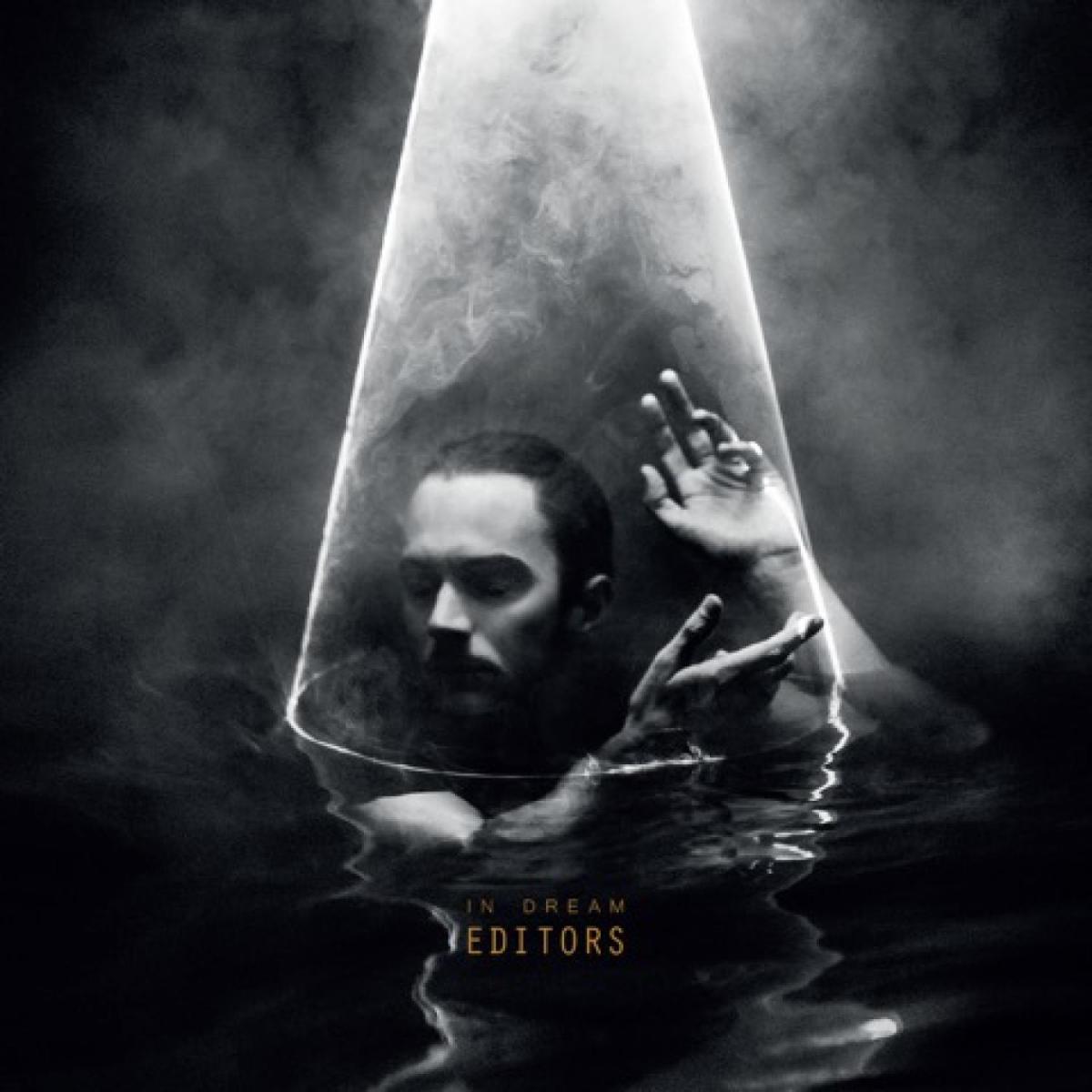A nagging synth pattern, a minimal echoing drum and a guy whose baritone chant of ‘I’m a go-getter’ sounds alarmingly like Nick Cave. One could be forgiven for thinking they’re listening to an outtake from the latest Bad Seeds offering, 2013’s ‘Push The Sky Away ‘ that is, until they’re startled by the falsetto in the first chorus. This is in fact ‘No Harm’, the opening track from the fifth Editors album, a great moody synthscape littered with deep piano chords and occasional burst of feedbacky, distorted electric guitar and a solid, if slightly repetitive lead vocal.
Then, as the ominous opening track fades out, ‘Ocean of Night’ starts out with a piano line that is inarguably house music. However, the sluggish tempo and the guy singing like Ian Curtis reminds one that they’re listening to the latest Editors record. The band can’t be blamed for the lack of trying to confuse their audience though, as the somewhat lame, almost Arcade Fire-lite chorus (an unfortunate coincidence considering the song title’s similarity to that band’s ‘Ocean of Noise’) comes in with an unexpected female voice, Slowdive’s Rachel Goswell providing a pleasant counterpart to Tom Smith. The track builds up with some interesting rhythms and textures and some catchy singing, particularly in the middle eight. Definitely a highlight.
‘Forgiveness’ kicks off with a memorable guitar/synth line followed by another cool prickly synth line which form the main hooks of the song – a mid-tempo bass and drum groove, with halting vocals in the verse. The ascending pre-chorus sections with the ‘forever young’ utterings build up nicely to the poignant chorus ‘forgiveness makes fools of us, of us’ where the opening guitar/synth lines return to create probably the catchiest moment of the entire album.
Unfortunately the powerful first impression ends there. Track number four rings the alarm bells immediately due to the title, ‘Salvation’ and the striking but annoying string intro. The verses aren’t too bad, moving along at a decent pace with the occasional synth and piano incisions but the chorus reeks of pomposity and the track overall presents few musical ideas of worth. ‘Life Is A Fear’ is a disco song with an obnoxious chorus sporting a four-note synth pattern underlying Tom Smith’s falsetto whines of ‘life is a fear of falling, life is a fear falling through all the cracks’. The overly fuzzy bass and the echoing piano notes somewhat remind me of Muse, although I feel Muse may have the tenacity to pull off a track like this – in the Editors’ hands it feels like a poor attempt to New Order their way out of their Joy Division image.
‘The Law’, while not being as offensive as the previous two tracks is still culprit for being hook-less and utterly forgettable. The closest thing to a hook is the repeated heavily processed cowbell sounding ostinatos as the track progresses to build up with layers and layers of synths. Rachel Goswell makes another appearance adding much needed freshness but this can’t save the track, another one in which the band ends up sounding more like another – this time The Cure but without anywhere near the skills to pull off that band’s giganticness of sound. ‘Our Love’ is another disco track I’d rather forget, structured the same way numerous contemporary dance tracks are and imitating the same sound textures, even if it essentially succeeds in its attempt to be anthemic with its ‘don’t stop believin’ refrain.
‘All The Kings’ should probably be given the award for the catchiest song over ‘Forgiveness’ but I refrain from doing so as most of its catchiness stems from its resemblance to ‘Viva La Vida’ by Coldplay. Still a good song with catchy vocals – ‘the beat of your heart’ and ‘loneliness forever’ – but the coda seems strangely out of place. ‘At All Cost’ is a minimally arranged ballad with an impassioned vocal which is slightly overlong, but the coda boasts the prettiest and most romantic moment on the entire record with the vocal harmonies and string and synth counter-melodies supported by a solemn single drum beat. Finally, ‘Marching Orders’ is the 7 minute opus of the record with a typically U2 chord progression and would actually probably sound super cool in a Bono version supported by The Edge’s dazzling guitar lines and could really used the compactness of the U2 rhythm section to drive it forward. While it doesn’t quite reach the heights of that band, it’s still a nice imitation piece, if a bit overlong.
Overall, the record starts and ends strongly but is really let down by the middle and another aspect I haven’t mentioned yet – the production. This is the first record to be produced by the band itself and it really shows, with overdone compression and reverbs. The album is overly loud and the reverbs takes away definition from areas throughout the songs, making it a much more difficult experience than the band obviously intended with the poppier approach to songwriting. All that being said, none of the songs are terrible and the production shouldn’t be a factor getting in the way of enjoying some of the better moments of the album and the overall mood and sound (which, by the way is appropriately matched to the album cover). Listen to it on a late night drive; knowing that this is no longer the same band that brought you An End Has a Start, but a band going through an identity crisis, although that’s not necessarily a bad thing.
6.5/10














No Comment